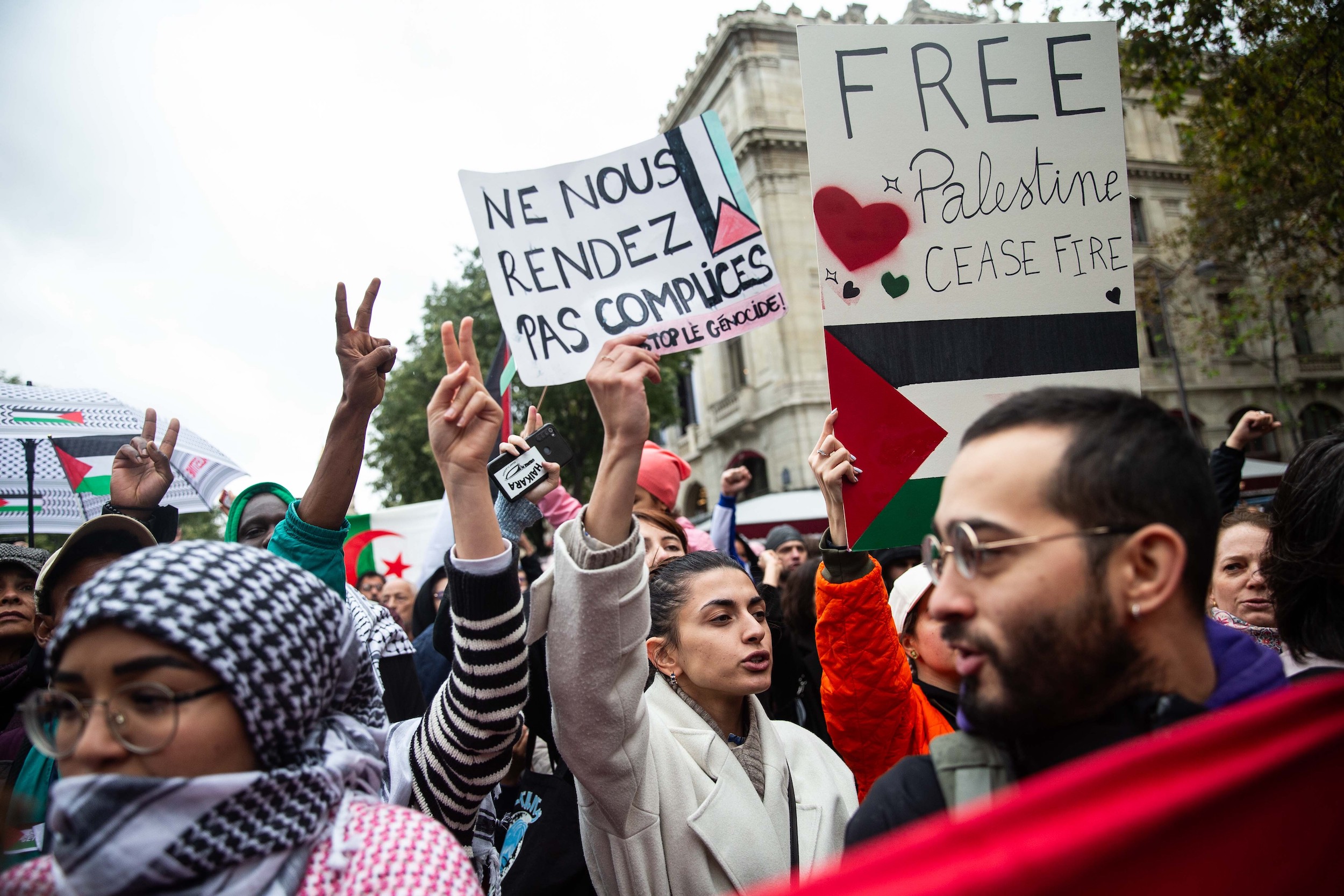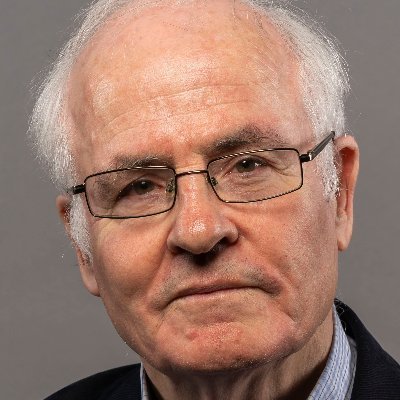People don’t always want to hear the historical context behind horrifying events, resorting even to censorship, but the media must be free to provide it
Journalists tend to be thick-skinned when it comes to war reporting, but few will be unmoved by the painful, almost unbearable story of how Al Jazeera bureau chief Wael Dahdouh was speaking live to camera from the rubble of the frontline in Gaza when he heard that his wife, son and daughter had been killed in an Israeli missile strike.
Dahdouh is a media veteran, a familiar face to people across the Middle East and renowned for his reporting from the region and particularly the continuing tragedy of the Israeli-Palestine conflict.
His devastating experience highlights again the risks to journalists and their families when covering a conflict that for more than 70 years has defied numerous attempts at reconciliation and peace-making.
The latest explosion of violence began on 7 October with an attack by Hamas, the governing regime in Gaza, on Israeli settlements close to the border of this strip of land, home to 2.2 million people, which has been separated both physically and politically from the rest of the Palestinian community in the West Bank since 2005.
Media both on the ground and around the world struggled to tell this story, not least because of a barrage of propaganda from both sides and the relentless outpouring of toxic disinformation online.
A historical legacy lost in the horror
In the immediate aftermath of the Hamas attack and hostage-taking, as Israel laid siege to Gaza and launched a deadly and continuous barrage of missile strikes (which has now claimed the lives of more than 8,000 Palestinians), it was almost impossible for media to provide background and context to a conflict that has been in and out of the headlines for decades.
This should have come as no surprise. The scale of the initial attack and the shock it entailed, meant that the media story could not concentrate on the long view. Instead, media coverage put an intensely emotional and personal focus on the victims of the Hamas attack and the civilian death toll in Gaza caused by Israeli contentious airstrikes.
When people are grieving the loss of innocent victims, or suffering anxiety over the fate of hostages, or traumatised by the nature of the violence they are suffering, it is difficult to step back and take distance and reflect, for instance, on the historical legacy that may have led to the Hamas attack.
This was the case in the US after the 9/11 attacks when American media took some weeks to recover from the shock of the attack on the twin towers and attempts by journalists to put the violence that killed almost 3,000 people into a historical context were frequently met with opposition from many readers. Many media observers, particularly in Europe, were confused by this, but proximity and timing are key factors that shape the form and nature of response to this sort of crisis.
This may explain why even that master of diplomacy, Antonio Gutteres, the United Nations Secretary General, got into trouble for a statement at the UN two weeks after the attack which enraged Israeli leaders, because he appeared in their minds to be "soft" on Hamas. He wasn’t. The words he used were not wrong, but perhaps he used them in the wrong order and at a time when many people did not want to hear them.
Blatant censorship
So, too, journalists reporting this conflict need to be sensitive to the fraught and emotional state of their readers. But the Gaza crisis has created a uniquely hostile climate for media both in the region and beyond where freedom of expression is under attack.
The political response, particularly in Europe, borders on blatant censorship. In France there have been attempts to ban pro-Palestinian demonstrations; in Germany, political leaders have called for migrants to be forced to pledge support for the security of Israel; and in the UK, right-wing politicians urge the police to arrest anyone for chanting the word “Jihad” at protest rallies.
Almost from the outset, journalists and media have been under pressure to declare allegiance to one side or the other. A row over the BBC’s failure to describe Hamas as a “terrorist” organisation has led to a tedious compromise where in every news report every reference to Hamas is followed by the statement: “which is designated as a terrorist organisation by the government.”
Journalists are accused of bias by all sides and accuracy is at a premium as news media struggle to verify claim and counterclaim, to avoid being duped by media-savvy spin from propagandists on either side, and to challenge the demonising of opponents and the wilful disregard of human suffering.
At the same time, the physical threats to journalists continue. At the time of writing around 25 journalists and media staff have been killed. At particular risk are journalists working inside Gaza where everyone is in the firing line.
Nevertheless, the story has to be told, and not only through the distorted lens of either the Israeli armed forces or Hamas.
Some facts are already well established: three weeks into the war, the number of dead continues to mount; 1,400 victims of Hamas attack; more than 8,000 Palestinians slaughtered by the raining of Israeli bombs on the community. More than 200 hostages are still unaccounted for while thousands of workers from Gaza are missing - presumed arrested and held in Israeli detention centres - in the West Bank and Israel.
And with more than one million Palestinians displaced and crowding into the southern part of Gaza, the UN is warning that a humanitarian disaster is looming.
Press freedom is vital
The only hope of mitigating this potential disaster is for journalists and news media to be given the freedom to tell the story and to give the world credible insights into this unfolding tragedy.
Media outside the region need to challenge the outrage and certainties of political leaders, to show more curiosity about the depth of public concerns as hundreds of thousands of people take to the streets in Western countries with calls for an end to violence, and to listen to the authentic voices of sources on the ground - particularly those of Palestine journalists.
Of course, the most challenging task for reporters and editors is to meet the ethical challenge of impartiality, a cardinal ethic of journalism. One can imagine that this is hard for some journalists, like the Al Jazeera colleagues of Wael Dahdouh, for example.
But fairness, telling the other side of a story and looking for relevant opinion, even if one might robustly disagree with it, are the bedrock of quality journalism and principles that news media need to uphold in telling the Gaza story.
As a journalist from Palestine said this week: “Every inch of Gaza has a story to tell.” That has never been more true. Telling these stories with humanity, candour and accuracy is vital if the path to a just and lasting peace is ever to be found.
Aidan White is Honorary Advisor to the Fetisov Journalism Awards and President of the Ethical Journalism Network
The views expressed in this article are the author’s own and do not necessarily reflect Al Jazeera Journalism Review’s editorial stance





































